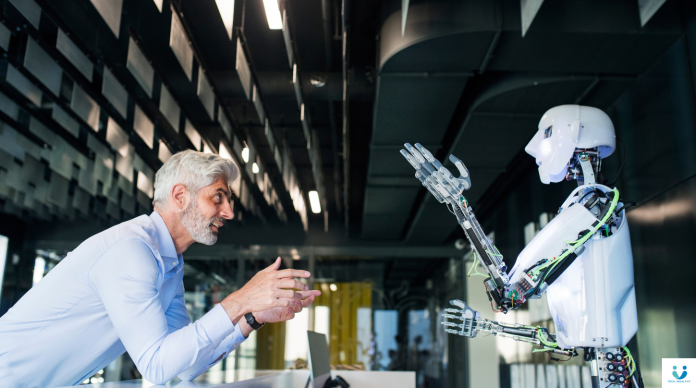The Future of Work & Society in the Age of AI
Introduction
Artificial Intelligence (AI) is no longer just a futuristic concept—it’s actively shaping how we work, live, and interact with each other. From automation in industries to AI-powered personal assistants, this technology is transforming society at every level. Understanding the future of work and society in the age of AI is crucial for businesses, professionals, and everyday individuals alike.
- Automation and the Workforce
One of the most significant impacts of AI is automation. Repetitive tasks in manufacturing, logistics, and even customer service are increasingly handled by AI systems and robots.
- Jobs that require manual, repetitive work are most at risk.
- At the same time, new opportunities are emerging in AI development, data science, and digital product design.
- Workers will need to reskill and adapt to stay competitive in the labor market.
-Subtle CTA: Exploring AI tools now can help professionals future-proof their careers.
- The Rise of Remote and AI-Assisted Work
The COVID-19 pandemic accelerated the adoption of remote work, and AI has made it more efficient. Tools powered by AI assist in:
- Collaboration: Automating meeting notes, task assignments, and scheduling.
- Productivity: Personalized AI assistants help workers manage time effectively.
- Communication: Real-time translation and transcription make global teams more connected.
This shows how AI is not just replacing jobs—it’s also empowering workers to achieve more.
- Social and Ethical Implications
The widespread use of AI brings important ethical and social questions:
- Privacy concerns: How much of our personal data should AI systems access?
- Bias in algorithms: Ensuring fairness and equality in AI-driven decisions.
- Economic inequality: Will AI deepen the gap between those who can use it and those who cannot?
Society must balance technological progress with responsible governance to avoid unintended harm.
- Preparing for the AI-Driven Future
To thrive in the AI age, individuals and businesses should:
- Embrace lifelong learning and reskilling.
- Leverage AI as a partner, not a competitor.
- Support policies that promote ethical AI use.
- Encourage innovation while protecting human values.
By taking action now, we can ensure AI enhances society rather than disrupts it negatively.
Conclusion
The future of work and society will be defined by how we adopt and regulate AI. While some jobs will disappear, many new roles and industries will emerge. AI has the potential to reduce inequality, boost innovation, and create opportunities—if managed responsibly.
– The key is preparation: learn, adapt, and innovate with AI. The future isn’t just about technology—it’s about how humanity chooses to use it.



